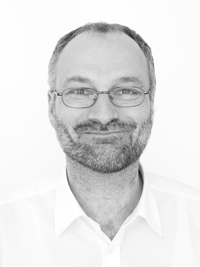What have you done?
In 1985, I graduated in psychology at the University of Basel and then worked as a computer programmer in the chemical industry. From there, I went to the University of Bern to do my doctorate (1994). A post-doctoral fellowship enabled me to spend two years at the University of Michigan at Ann Arbor and one year at the Université de Bourgogne at Dijon, France. I returned to Bern, first as a researcher and then as a research assistant professor, funded by the Swiss National Science foundation.
In 2003, I moved to Bergen, first as an associate professor and from 2004 as a professor. My research revolved around effects of processing fluency, which is the ease with which a mental operation is performed. Together with Norbert Schwarz and Piotr Winkielman (in Personality and Social Psychology Review), I published the processing fluency theory of aesthetic pleasure that influenced research in cognitive and social psychology, marketing, design, and even archeology.
Recently, we put forward an account of the Aha-experience (with Sascha Topolinski, Current Directions in Psychological Science) and a psycho-historical framework for research in art appreciation (Behavioral and Brain Sciences, with Nicolas Bullot).
Another research interest pertains to student interest at school. We developed a new teaching technique, example choice, in order to increase interest in mathematics and science education. First results were encouraging.
What are you planning to do?
I shall pursue three projects: First, we are examining example choice more closely in a project funded from the Utdanning2020 program at NFR.
Second, I shall examine the effects and phenomenology of Aha-experiences. The final goal is to find tasks that induce Aha-experiences in order to make mathematics a more exciting subject.
Third, I am writing a book on critical feeling, extending a chapter on the same topic published last year.
Who is Rolf Reber?
A man with dreams. The first dream is to explore the possibility to improve personal outcomes through the use of feelings. That is what my research projects are directed at.
Another dream is to change university education in a way that students make meaningful products that have a wider audience than just those people who mark them. To that purpose, students in my seminars wrote and published newspaper articles (in Switzerland) and pieces for Wikipedia (in Norwegian and German). I hope to extend this approach to teaching in the future.
Finally, I am a family man: My wife Hélène and I have four children who are between 17 and 9 years.

